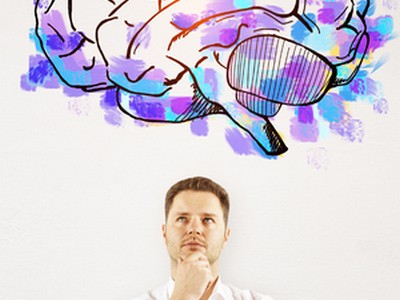
Help Someone With Anxiety Psychologist Ashmore (07) 5539 9798
Isabella Whittingham Registered Psychologist Ashmore

Introduction: Men's Depression Psychologist Ashmore Near Me
Anxiety and anxiety are 2 of the most typical psychological health disorders that people deal with today. While they might appear like different conditions, they are frequently interconnected and can have a considerable effect on an individual's overall wellness. In this short article, we will explore the connection between anxiety and anxiety, the symptoms related to each condition, and what steps individuals can require to handle and overcome these challenges.
Understanding Anxiety and Depression
What is Anxiety?
Anxiety is a natural response to tension or risk. It is defined by sensations of anxiousness, concern, and fear about everyday situations. While it is typical to experience anxiety from time to time, chronic anxiety can hinder everyday activities and effect one's quality of life.
What is Depression?
Depression, on the other hand, is a mood disorder that impacts how you feel, believe, and deal with day-to-day activities. It exceeds normal feelings of unhappiness or sorrow and can continue for weeks, months, or perhaps years. Depression can make it hard to function in various locations of life, consisting of work, relationships, and self-care.
The Connection In Between Stress And Anxiety and Depression
Anxiety and depression often go together. Many people who experience stress and anxiety likewise struggle with symptoms of anxiety, and vice versa. The link between the two conditions can be attributed to several aspects:
Chemical Imbalance: Both anxiety and anxiety are thought to involve an imbalance of neurotransmitters in the brain, such as serotonin and dopamine.
Shared Genetic Aspects: Research recommends that there might be a hereditary predisposition for developing both anxiety and depression.
Stressful Life Occasions: Traumatic experiences or considerable life occasions can set off both anxiety and anxiety symptoms.
Negative Believing Patterns: Individuals with stress and anxiety tend to have negative thoughts and worry excessively about future occasions. These believed patterns can contribute to the advancement of depression.
Physical Symptoms: Stress and anxiety and anxiety can manifest with comparable physical symptoms, such as tiredness, sleep disruptions, and modifications in appetite.
Symptoms of Anxiety
Anxiety can manifest in various methods and might present different signs in each person. Some common symptoms of stress and anxiety consist of:
Excessive Worry: Consistent and excessive fretting about everyday circumstances, even when there is no evident factor for concern.
Restlessness: Feeling on edge or not able to unwind, frequently accompanied by physical manifestations like trembling or fidgeting.
Difficulty Focusing: Difficulty focusing or remaining present due to racing ideas or fixation with worry.
Irritability: Feeling quickly frustrated or upset, sometimes without a clear cause.
Sleep Disturbances: Insomnia or restless sleep due to racing thoughts or worries.
Physical Symptoms: Anxiety can also manifest physically, causing signs such as rapid heartbeat, shortness of breath, lightheadedness, or intestinal issues.
Symptoms of Depression
Depression can differ in intensity and discussion from person to person. Some typical symptoms of anxiety include:
Persistent Unhappiness: Feeling unfortunate, empty, or hopeless for an extended period, typically accompanied by tearfulness.
Loss of Interest: Disliking activities as soon as delighted in and experiencing a lack of motivation.
Changes in Appetite: Substantial weight loss or gain due to modifications in cravings or eating habits.
Fatigue: Feeling worn out and lacking energy, even after getting enough sleep.
Difficulty Concentrating: Problem focusing, making choices, or remembering details.
Suicidal Thoughts: In serious cases, anxiety can cause thoughts of self-harm or suicide. It is vital to look for aid if you experience these thoughts.
How to Manage Anxiety and Depression
Managing stress and anxiety and depression requires a detailed technique that deals with both the physical and psychological elements of these conditions. Here are some techniques that can help:
Seek Expert Help: Talk to a mental health specialist, such as a depression psychologist in Surfers Paradise, who can supply an accurate medical diagnosis and establish an individualized treatment plan.
Medication: In some cases, medication may be prescribed to assist manage symptoms of anxiety and anxiety. A qualified healthcare provider can figure out if medication is necessary.
Therapy: Cognitive-behavioral treatment (CBT) and other evidence-based treatments can assist individuals recognize negative idea patterns, develop coping systems, and improve total well-being.
Self-Care: Take part in activities that promote self-care, such as routine workout, practicing relaxation strategies (e.g., deep breathing or meditation), guaranteeing appropriate sleep, and preserving a well balanced diet.
Social Assistance: Connect to friends, household, or support system who can supply understanding and support throughout difficult times.
Avoid Drug abuse: Drug abuse can intensify signs of stress and anxiety and depression. It is important to avoid self-medicating with drugs or alcohol.
Frequently Asked Questions
- Anxiety is characterized by extreme concern and fear about daily circumstances, while anxiety includes relentless feelings of sadness or hopelessness that affect daily functioning.
- Yes, stress and anxiety is thought about a mental disorder when it interferes with every day life and causes considerable distress.
- Signs of anxiety in guys may consist of irritability, anger or aggressiveness, increased risk-taking behavior, substance abuse, or physical signs like headaches or gastrointestinal issues.
- While there is no conclusive cure for anxiety and anxiety, they can be successfully handled and treated with the best combination of therapy, medication, and self-care strategies.
- Yes, depression is a mental illness characterized by persistent feelings of unhappiness, hopelessness, and a loss of interest in activities once enjoyed.
- Offer support and support, listen without judgment, and encourage them to look for professional aid. Inform yourself about their conditions to much better understand their experiences.
Conclusion
Anxiety and anxiety are complex conditions that typically coexist and can significantly affect an individual's wellness. Understanding the connection between these 2 disorders is crucial for efficient treatment and management. By looking for professional assistance, practicing self-care, and building a strong support system, individuals can take steps towards conquering anxiety and anxiety and gaining back control over their lives. Keep in mind that you are not alone in this journey, and there is hope for a brighter future.
Is Anxiety A Mood Disorder Psychologist Ashmore
Depressive Symptoms Psychologist Ashmore Near Me
Isabella Whittingham Registered Psychologist Gold Coast
Surfers Paradise Chiropractic Centre-Dr. Bruce Whittingham
12 Thomas Drive, Surfers Paradise QLD 4217
(07) 5539 9798
https://surfersparadisechiropractic.com.au
Difference Between Depression And Anxiety Psychologist Ashmore Near Me